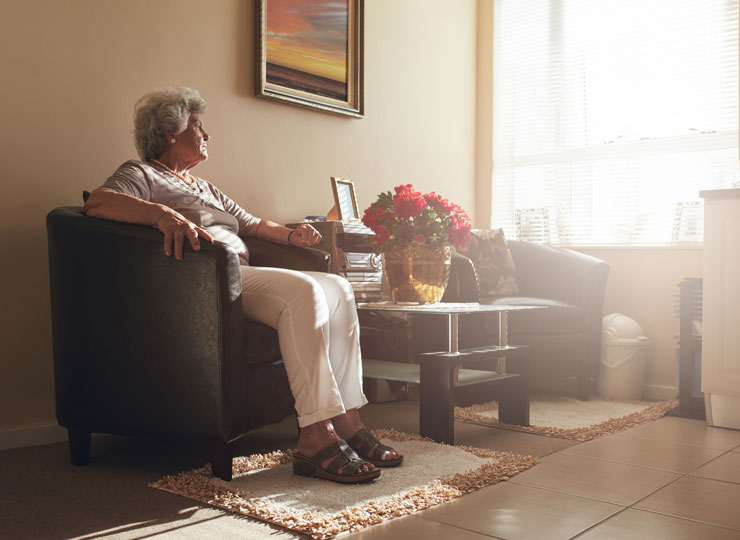
January 13, 2020
Exposure to bright light may improve sleep and ease depression and agitation in people with Alzheimer’s disease, according to a new report. Bright light therapy has been used for decades to treat “winter blues” and other mood disorders. This new study suggests that light therapy, or even spending more time outdoors in sunlight, may have benefits for people with Alzheimer’s disease as well.
For the study, researchers studied 46 men and women with Alzheimer’s disease who were living in Alzheimer’s care facilities in New York and Vermont. For four weeks, they were exposed to bright light that simulated sunshine via specially designed floor lamps or light boxes. The bright lights were placed in bedrooms and in dining rooms and other common areas, so they were exposed to bright light for much of the day.
Light meters confirmed that they were exposed to high levels of light during the day. The light was designed to stimulate healthy circadian rhythms, which control our sleep-wake cycles. The study participants were given regular assessments of sleep quality, as well as mood and agitation levels, during this time.
The study participants also underwent assessments while living under the standard light conditions provided by the facilities.
The researchers found that exposure to the bright daytime light significantly improved sleep quality. During the light period, they also showed fewer symptoms of depression and agitation. The findings were published in the December issue of the Journal of Clinical Sleep Medicine.
No one is sure how light therapy works. But it is known to help reset the body’s biological clock. Light also stimulates melatonin and other hormones involved in mood and sleep regulation.
Poor sleep, depression and agitation are common in people with Alzheimer’s disease, and are a common reason why someone with Alzheimer’s can no longer remain in their home. Caregivers often find it impossible to care for patients who sleep only two or three hours at night and require constant monitoring when they are awake. “It is very stressful for the caregiver,” said Mariana G. Figueiro, the study’s principal investigator and director of the Lighting Research Center and professor of architecture at Rensselaer Polytechnic Institute in Troy, N.Y. Angry outbursts and agitation also take an extra toll on caregivers.
The findings suggest that light therapy could be a useful way to ease some of these troublesome symptoms. Light therapy is also far safer than antipsychotic drugs, which are often prescribed to people with Alzheimer’s to ease agitation and aggression but which can have dangerous side effects.
Light boxes are commercially available for several hundred dollars to simulate the effects of natural sunshine. They are commonly used by people with seasonal affective disorder or other forms of depression and can also be effective for people with sleep disorders. Several hours in the morning, particularly during the winter months, can provide a boost in mood or provide sounder sleep at night.
Going outside and getting exposed to natural sunlight can also be an effective form of light therapy. Dr. Figueiro recommends that people with Alzheimer’s disease have regular exposure to natural light in their homes during the day and go outside whenever possible. “Take people for a walk. Take people outdoors,” she said.
For more information on light therapy, visit the Web sites of the Society for Light Therapy and Biological Rhythms at www.sltbr.org and the Center for Environmental Therapeutics at www.cet.org.
By ALZinfo.org, The Alzheimer’s Information Site. Reviewed by Marc Flajolet, Ph.D., Fisher Center for Alzheimer’s Research Foundation at The Rockefeller University.
Source: Mariana G. Figueiro, PhD; Barbara Plitnick, RN; Charles Roohan, BS; et al: “Effects of a Tailored Lighting Intervention on Sleep Quality, Rest–Activity, Mood, and Behavior in Older Adults With Alzheimer Disease and Related Dementias: A Randomized Clinical Trial.” Journal of Clinical Sleep Medicine, Dec. 2019.











